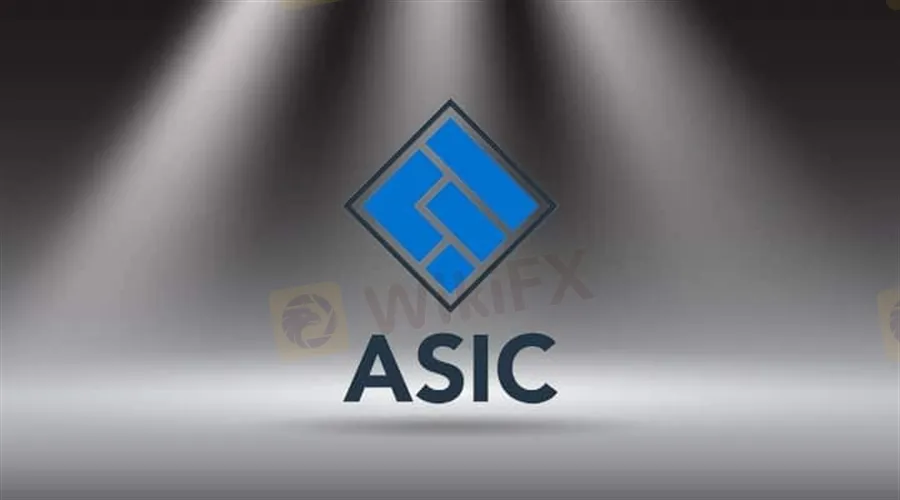简体中文
繁體中文
English
Pусский
日本語
ภาษาไทย
Tiếng Việt
Bahasa Indonesia
Español
हिन्दी
Filippiiniläinen
Français
Deutsch
Português
Türkçe
한국어
العربية
ASIC Reveals 4-Year Plan, Focus Will Be on Tech Risks and CHESS Replacement
Abstract:The regulator outlined corporate plans until 2026. It will also supervise ASX on CHESS replacement.

The Australian Securities and Investments Commission (ASIC) revealed its corporate plans on Monday for the next four years, between 2022 and 2026, highlighting its priorities around the design and distribution of products and technology risks.
Take Advantage of the Biggest Financial Event in London. This year we have expanded to new verticals in Online Trading, Fintech, Digital Assets, Blockchain, and Payments.
Additionally, the Aussie regulator is going to focus on sustainable finance by “proactive supervision and enforcement” of regulatory standards and on retirement decision-making, which is to protect customers investing in superannuation products.
“The plan identifies work we have underway to address a number of emerging trends and important law reforms that are reshaping the financial system, including digitally enabled misconduct, emerging technologies, climate risks and an aging population,” ASICs Chair, Joe Longo said.
Supervision and Monitoring on ASX
Moreover, the regulator will supervise the Australian Securities Exchange (ASX) in the replacement of CHESS with a blockchain-based solution.
On top of that, ASIC will be monitoring the compliance of two ASX subsidiaries, ASX Clear and ASX Settlement, with additional license conditions that were imposed in November 2021, a year after an outage on the stock trading platform.
“We will also analyze and assess the ASX operating rules changes necessary for the CHESS replacement, and provide ASIC‘s advice to the Minister’s delegate as to whether to disallow all or a part of the changes,” the 31-page long official document stated.
Reporting Changes
The Australian market supervisor is going to align the over-the-counter (OTC) derivatives trade reporting requirements with international requirements over the next two years. It is further going to enhance data aggregation and surveillance capabilities, and effective information sharing.
For enhancing market supervision, the regulator will review artificial intelligence and machine learning practices, risks and controls among market intermediaries. Furthermore, it will bring rules and guidance for automated order processing.
“ASIC is looking to the longer term and planning over the next four years. But, weve seen that scenarios can change quickly. We remain alert to changes and developments in our operating and regulatory environment, and we will continue to make rapid, strategic decisions to adapt where needed. When we do so, it will be transparent,” Longo added.

Disclaimer:
The views in this article only represent the author's personal views, and do not constitute investment advice on this platform. This platform does not guarantee the accuracy, completeness and timeliness of the information in the article, and will not be liable for any loss caused by the use of or reliance on the information in the article.
Read more

IG 2025 Most Comprehensive Review
This article evaluates the broker from multiple dimensions, including a basic introduction, fees, safety, account opening, and trading platforms.

EXNESS 2025 Most Comprehensive Review
This article evaluates the broker from multiple dimensions, including a basic introduction, fees, safety, account opening, and trading platforms.

Top Profitable Forex Trading Strategies for New Traders
Know profitable Forex strategies for beginners, including risk management tips, best currency pairs, technical analysis tools, and timeframe selection.

WikiFX Review: Is IVY Markets Reliable?
IVY Markets, established in 2018, positions itself as a global brokerage offering a diverse range of trading instruments, including Forex, Commodities, Cryptocurrencies, and Stocks. The platform provides two primary account types—Standard and PRO—with a minimum deposit requirement of $50 and leverage up to 1:400.
WikiFX Broker
Latest News
Germany's Election: Immigration, Economy & Political Tensions Take Centre Stage
WikiFX Review: Is IVY Markets Reliable?
IG 2025 Most Comprehensive Review
Top Profitable Forex Trading Strategies for New Traders
EXNESS 2025 Most Comprehensive Review
New SEC Chair Paul Atkins Targets Crypto Regulation Reform
ED Exposed US Warned Crypto Scam ”Bit Connect”
Currency Calculator






